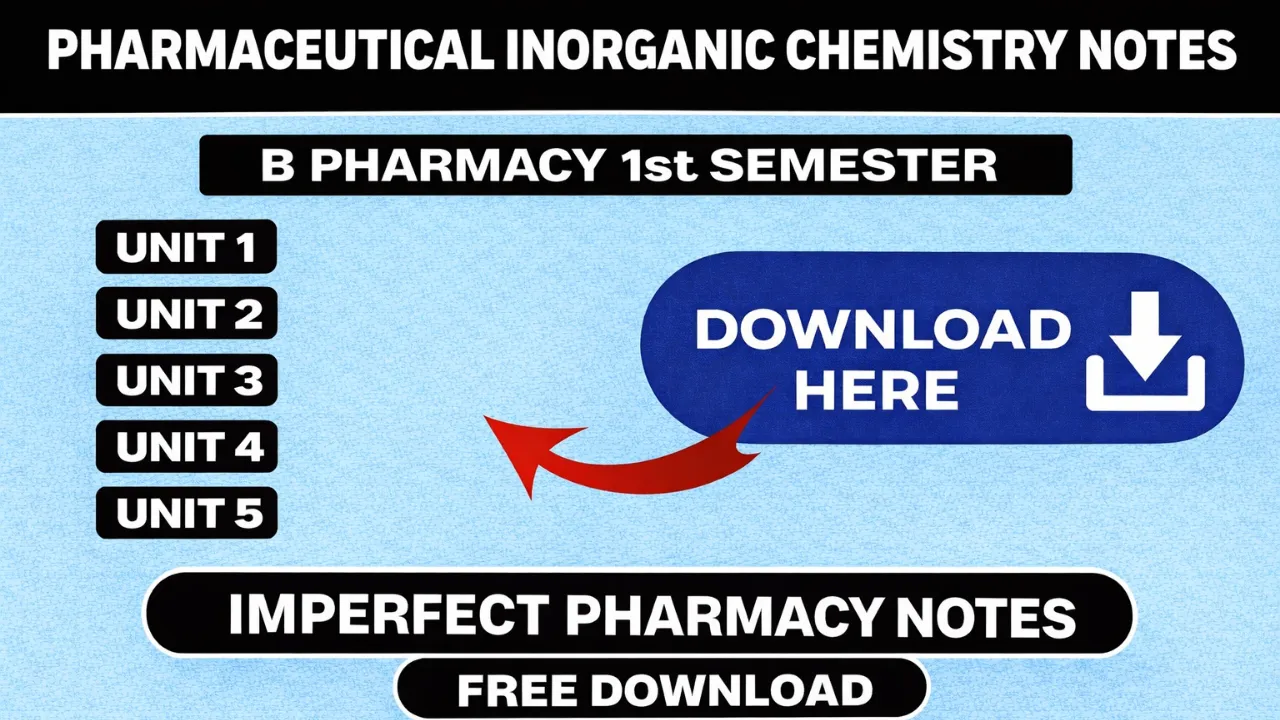Imperfect Pharmacy
B. Pharmacy
Notes
1ST SEMESTER
PHARMACEUTICAL INORGANIC CHEMISTRY
Unit 1
Impurities in pharmaceutical substances: History of Pharmacopoeia, Sources and types of impurities, principle involved in the limit test for Chloride, Sulphate, Iron, Arsenic, Lead and Heavy metals, modified limit test for Chloride and Sulphate.
General methods of preparation, assay for the compounds superscripted with asterisk (*), properties and medicinal uses of inorganic compounds belonging to the following classes
Unit 2
Acids, Bases and Buffers: Buffer equations and buffer capacity in general, buffers in pharmaceutical systems, preparation, stability, buffered isotonic solutions, measurements of tonicity, calculations and methods of adjusting isotonicity.
Major extra and intracellular electrolytes: Functions of major physiological ions, Electrolytes used in the replacement therapy: Sodium chloride*, Potassium chloride, Calcium gluconate* and Oral Rehydration Salt (ORS), Physiological acid base balance.
Dental products: Dentifrices, role of fluoride in the treatment of dental caries, Desensitizing agents, Calcium carbonate, Sodium fluoride, and Zinc eugenol cement.
OPEN UNIT 2
Unit 3
Gastrointestinal agents
Acidifiers: Ammonium chloride* and Dil. HCl
Antacid: Ideal properties of antacids, combinations of antacids, Sodium Bicarbonate*, Aluminum hydroxide gel, Magnesium hydroxide mixture
Cathartics: Magnesium sulphate, Sodium orthophosphate, Kaolin and Bentonite
Antimicrobials: Mechanism, classification, Potassiu permanganate, Boric acid, Hydrogen peroxide*, Chlorinated lime*, Iodine and its preparations
OPEN UNIT 3
Unit 4
Miscellaneous compounds
Expectorants: Potassium iodide, Ammonium chloride*.
Emetics: Copper sulphate*, Sodium potassium tartarate
Haematinics: Ferrous sulphate*, Ferrous gluconate
Poison and Antidote: Sodium thiosulphate*, Activated charcoal, Sodium nitrite333
Astringents: Zinc Sulphate, Potash Alum


1 thought on “Pharmaceutical Inorganic Chemistry Notes | B Pharmacy 1st Semester Imperfect Pharmacy Notes”
Comments are closed.